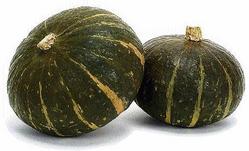
Rosalee Brown - DIETITIAN'S DESK
Dear Ms Brown:
Your articles are very informative; I look forward to reading them weekly. I am undergoing a lifestyle change and diet is a part of the change. I drink green vegetable juices, with garlic, two or three times a week. I also eat steamed and raw vegetables with either sardines, fish or chicken for lunch. I also have either dasheen, sweet potato, cooked plantain or yam as my daily starch. My question is, which vegetables are starchy vegetables?
Dear Reader:
You seem to be on a very good path, a mixture of juiced green vegetables is packed with vital nutrients and consuming vegetables of other colours, steamed and raw, with lean meat is also very good.
You also consume staples which can be categorised as starchy fruits, starchy tubers and starchy vegetables. Vegetables are often categorised according to the percentage starch to sugar ratio. Leafy vegetables are relatively high in water and have a greater amount of sugar compared to starch. Other vegetables such as pumpkin, green peas and freshly harvested corn are often categorised as non-starchy, as their sugar content is higher than starch immediately after harvesting. However, many of these vegetables still have greater starch content than the leafy greens.
Starch vs carbs
Please note that non-starchy is not the same as low in carbohydrate, as sugar is a form of carbohydrate. Many references categorise potatoes, tubers and starchy fruits, such as plantain, breadfruit and green bananas, as starchy vegetables. In the Caribbean, however, the reference to starchy vegetables contains some vegetables in the non-starchy category with higher carbohydrate content, such as green peas and pumpkin.
My article was, therefore, suggesting that more vegetables can be had and can be used to replace staples such as rice and refined flour, which are higher in calories because of their density and lower water and fibre content compared to their high starch content.
Control high blood pressure
Dear Ms Brown:
I just finished reading your article (Control high blood pressure with potassium-rich vegetables, May 7) without understanding whatever you were trying to say. You must first realise that we are not all nutritionists or people with a PhD in medicine; we are just average people. Therefore, your words and message must be for the average person.
To a person trained in medicine or nutrition, I am certain that it would make a wonderful piece to read and enjoy. But to me, an ordinary Joe, you spoke a lot but you said nothing. Ms Brown, you barely mentioned the names of the fruits and vegetables that we should eat; you simply used a lot of technical jargon which I know most people don't understand.
I wish you would write this article again and, if you do, please go easy on the technical terms and concentrate on everyday English. When I saw the title of your column, I sat at my desk and asked my secretary not to disturb me; this due to the fact that I happen to be a health food nut. Here in Haiti, where I now work, articles on healthy diets are non-existent, so I look forward to reading the health page of The Gleaner whenever I get the chance.
Nutrition class

So, Ms Brown please don't take my criticism as destructive, just remember that your are in a position to influence a lot of people, for which I offer you my congratulations and respect. Just remember that in your articles you are not teaching a nutrition class, you are just using your knowledge to tell us poor working slobs that there are proper diets which we should adhere to, plain and simple. Cheers.
Dear Reader:
Sodium, which is one part of table salt (sodium chloride), is necessary in the body as it helps with the balancing of fluids, with muscle contraction and nerve impulses.
The kidney plays a very important role in regulating the amounts of sodium in the body. When the amount is low, it conserves the amounts eliminated in the urine and when it is high, it eliminates more in the urine. Sodium has a way of attracting and increasing the fluid in your body and subsequently your blood volume, which causes the heart to work harder to pump more blood, which increases the pressure in your arteries.
There are many persons who are more sensitive to the effect of sodium than others. These persons tend to retain more fluid than others and are more prone to high blood pressure. Our bodies work best when it contains three times the amount of potassium to sodium. Potassium is said to cause blood vessels to relax, and also makes them less sensitive to some compounds which cause contraction of the blood vessels and high blood pressure.
High in potassium
Vegetables such as pumpkin and leafy greens are high in potassium. Fruits, such as ripe bananas and all other plant foods in general, are also rich sources. All foods have sodium naturally occurring, but processed foods, such as powdered seasonings, vegetables in brine, dried soups and pickled fish, are examples of high-sodium foods which should either be avoided or should be had infrequently or in moderation if one has high blood pressure.
I hope this is more helpful. Continue to read this column.
Rosalee M. Brown is a registered dietitian/nutritionist who operates Integrated Nutrition and Health Services; email: yourhealth@gleanerjm.com.

